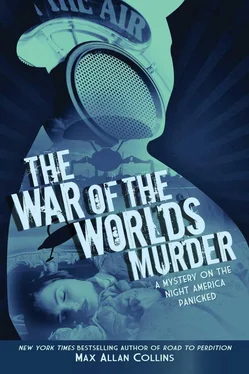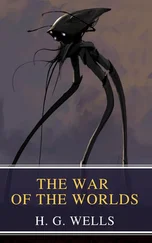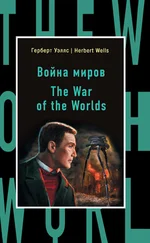Max Collins - The War of the Worlds Murder
Здесь есть возможность читать онлайн «Max Collins - The War of the Worlds Murder» весь текст электронной книги совершенно бесплатно (целиком полную версию без сокращений). В некоторых случаях можно слушать аудио, скачать через торрент в формате fb2 и присутствует краткое содержание. Жанр: Исторический детектив, на английском языке. Описание произведения, (предисловие) а так же отзывы посетителей доступны на портале библиотеки ЛибКат.
- Название:The War of the Worlds Murder
- Автор:
- Жанр:
- Год:неизвестен
- ISBN:нет данных
- Рейтинг книги:5 / 5. Голосов: 1
-
Избранное:Добавить в избранное
- Отзывы:
-
Ваша оценка:
- 100
- 1
- 2
- 3
- 4
- 5
The War of the Worlds Murder: краткое содержание, описание и аннотация
Предлагаем к чтению аннотацию, описание, краткое содержание или предисловие (зависит от того, что написал сам автор книги «The War of the Worlds Murder»). Если вы не нашли необходимую информацию о книге — напишите в комментариях, мы постараемся отыскать её.
The War of the Worlds Murder — читать онлайн бесплатно полную книгу (весь текст) целиком
Ниже представлен текст книги, разбитый по страницам. Система сохранения места последней прочитанной страницы, позволяет с удобством читать онлайн бесплатно книгу «The War of the Worlds Murder», без необходимости каждый раз заново искать на чём Вы остановились. Поставьте закладку, и сможете в любой момент перейти на страницу, на которой закончили чтение.
Интервал:
Закладка:
“Orson-surely you don’t intend to stretch out those musical interludes in such a fashion. The show is terribly slow in its opening third!”
“But it builds, Jack-it builds.”
Houseman’s eyes tightened. “Teasing through tedium?…I know what you’re up to-you’re hoping to take advantage of the naivete of some listeners, to fool them into thinking a real broadcast is being interrupted.”
The boyish face turned more boyish, thanks to Welles’s scampish smile. “Housey, please-you’d think I was crying ‘fire’ in a crowded theater!”
“It may well prove to be the radio equivalent thereof. If you would not indulge yourself in these drawn-out musical passages, and the…pauses, the silences…and all of these real-sounding places, official-sounding institutions…”
“CBS is satisfied with our changes. I instituted all of Dave’s last-minute ones, too.”
“Such as removing Franklin Roosevelt, and substituting the Secretary of Interior? You know goddamned well you’re directing Kenny Delmar to do his FDR impression!”
The smile turned downright devilish. He whispered, “It’s dead-on, isn’t it, Housey? Talented boy, our Kenny.”
“Orson, I’m warning you-you may get that lesson you’ve been asking for….”
“Oh, Housey-I’m going to need more than one lesson, don’t you think?”
Houseman sighed. “I’ve made my point of view known-nothing more I can do. But for your knowledge, I have Paul’s stopwatch tally. We’re way over.”
Welles cocked his head. “Where are we, Jack? How much cutting do we need to do?”
“You’re a good seven minutes long. If you’re not willing to trim back those endless musical interludes, I’d say the last section-the narrative bit about the professor wandering in the city-that can and must be pruned.”
Welles put a hand on Houseman’s shoulder. “Well, let’s get to work, then. You have your copy of the script handy?”
Houseman nodded. “It’s in the control booth. And I’ve annotated it. I’ll get it.”
He went off to do that, and Welles said, “Jack’s a great editor. You up for helping out, Walter?”
“Of course.”
With the exception of a theater on the ground floor, the studios (Gibson learned in passing) were confined to the twentieth and twenty-first floors. Another large one, the identical twin of Studio One, was on the twenty-first, directly above them; right now the highly regarded Norman Corwin was rehearsing a drama that would go on at nine P.M., after the Mercury Theatre.
Welles led Houseman and Gibson down the hallway, away from the lobby and Studio One, deep into the building.
Walking alongside Houseman, the writer asked, “Are we heading to your offices?”
Without looking at Gibson, Houseman said dryly, “You were in our offices on Thursday. At the theater.”
“You have no office space here at CBS?”
“Of course not. They only have four or five floors of them. Why should they spare us any?… We tend to use Studio Seven, a small studio that isn’t terribly well-equipped and hence not in much use…as a makeshift office. Or that is, we use the control room in that fashion.”
Welles, without glancing back, added, “Such as now, when we need to do some rewriting, away from the cast and techs. And to give Paul some breathing room to give the actors some last-minute tips.”
Gibson asked, “Why isn’t Howard Koch going along, if this a writing session?”
They had arrived at the end of the hall, which ended at Studio Eight, a hallway cutting to the left. Next to them at right were two doors, practically side by side, labelled: STUDIO SEVEN (left door) and CONTROL ROOM (right one).
Welles opened the latter door, reached a hand over to flick on the light switch, and with a gracious after-you gesture, said, “Because this isn’t so much a writing session as a cutting one-and I hate it when writers bleed.”
The joke wasn’t a particularly good one, but Gibson might have forced a chuckle if his eyes hadn’t been filled with something that turned the witticism into an unintentional lapse into poor taste.
This control room-not nearly as elaborately outfitted with electronics, and absent the adjacent smaller sub-control room-nonetheless had a large horizontal window looking out on a studio that was perhaps a tenth the size of Studio One.
The lights in the studio were off, but (sharing the control-room illumination) revealed itself bare of anything but a table and a chair, a few microphones on stands, and a few more chairs against a wall. Nothing very exceptional, really, except for the woman seated at the table.
Or rather, slumped there, like a schoolgirl napping at her desk.
Gibson didn’t recognize her at first-she was pale and her eyes were closed and her strawberry-blonde hair was askew, concealing a good portion of her face. But then it came to him: they had located the missing Miss Donovan, absent without an excuse from her receptionist post.
Only now she had an excuse, and a damned good one: her throat was slit and blood had pooled all over the tabletop, some of it dripping down the sides; and from their slightly elevated position in the control booth, the hunting knife…with the signature ORSON WELLES on its hilt…could be seen, swimming in red.
CHAPTER FIVE
Within the control booth, the three men pressed against the glass, like children at a department store window; but unlike those dreamy-eyed kids, this trio of adults stared aghast, at a nightmare.
“The poor child,” Houseman said. Then he rushed from the room.
Gibson followed, and saw Houseman at the studio door, reaching for the knob. He clutched the producer’s arm and said, “What about fingerprints?”
“What if the girl is still alive ?” Houseman’s normally unflappable expression was replaced by one of wide-eyed horror.
“With her throat cut? With all that blood…?”
“Are you a doctor, man?” Houseman snapped, and he clutched the knob, and twisted.
The door did not open.
“Locked!” Houseman blurted. He touched a hand to his forehead as if checking for a fever. “The goddamned thing is locked….”
Gibson took the few steps back to see what had become of Welles. Through the open doorway of the control booth, Welles could be seen, moon face as white as its namesake, the long tapering fingers touching his lips, those normally rather Chinese-looking eyes now as wide as a Cotton Club dancer doing stereotypical shtick.
Gibson stood in the doorway. “Orson-are you all right?”
Welles’s body remained facing the window, but his head swivelled and the huge eyes under raised eyebrows stared unblinkingly at the writer.
Very softly, Welles said, “I am decidedly not all right. That poor young woman-that sweet young woman…. ‘For in that sleep of death, what dreams may come?’ ”
Gibson thought if Welles was going to quote Shakespeare, it ought to be that line from Macbeth about how surprising it was, how much blood there’d been.
“Orson-join us in the hallway.”
He drew a deep breath, nodded gravely, but did not otherwise move, remaining as frozen as Lot’s wife.
In the hall, Gibson faced Houseman. “I believe she’s past help.”
Houseman had found his usual calm demeanor, if a troubled version thereof. “It would be difficult to break the thing down-all of these studios have heavy, soundproofed doors.”
Gibson pointed toward the small room from which Welles had yet to emerge. “What about that window?”
“Again,” Houseman said, shrugging fatalistically, “it’s heavy glass, perhaps unbreakable-part of the necessary soundproofing between control room and studio. Poor thing…poor thing….”
Читать дальшеИнтервал:
Закладка:
Похожие книги на «The War of the Worlds Murder»
Представляем Вашему вниманию похожие книги на «The War of the Worlds Murder» списком для выбора. Мы отобрали схожую по названию и смыслу литературу в надежде предоставить читателям больше вариантов отыскать новые, интересные, ещё непрочитанные произведения.
Обсуждение, отзывы о книге «The War of the Worlds Murder» и просто собственные мнения читателей. Оставьте ваши комментарии, напишите, что Вы думаете о произведении, его смысле или главных героях. Укажите что конкретно понравилось, а что нет, и почему Вы так считаете.

![Герберт Уэллс - The War of the Worlds [С англо-русским словарем]](/books/26611/gerbert-uells-the-war-of-the-worlds-s-anglo-thumb.webp)










